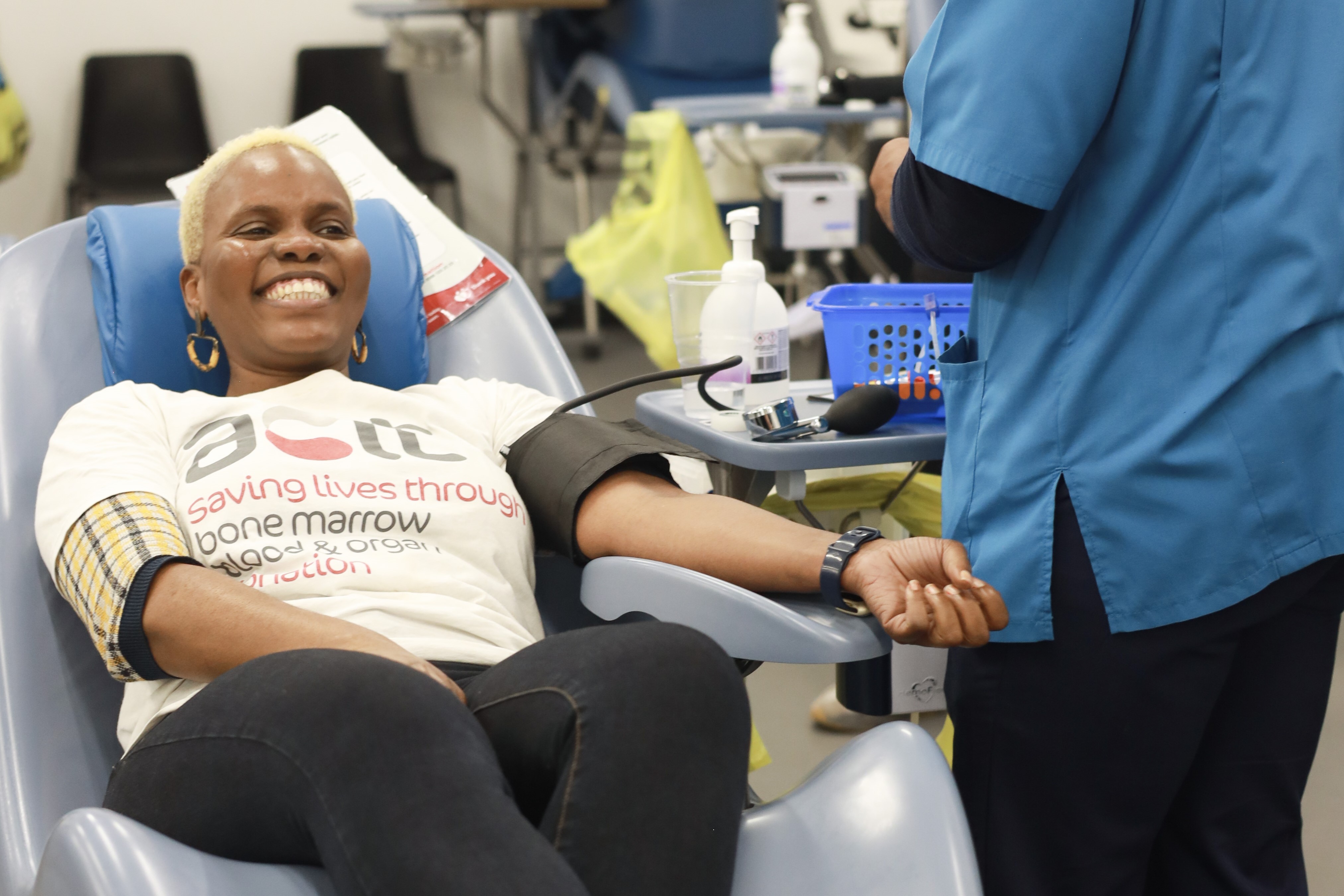
The African Caribbean Leukaemia Trust (ACLT) has been diversifying donation since 1996. It is an award-winning charity, with an aim to raise awareness and register potential lifesaving donors onto the stem cell, blood, and organ registers.
ACLT was formed after co-founders Beverley De-Gale and Orin Lewis’s received the devastating news their son Daniel De-Gale was diagnosed with leukaemia in April 1993 – he was just six years old.
Daniel De-Gale touched the hearts of a nation as he overcame incredible odds of one in 250,000 to become the first black individual in the UK to receive a lifesaving stem cell transplant from an unrelated donor in June 1999. Daniel beat his fight against leukaemia and lived a happy life alongside his family and friends for several years whilst receiving numerous blood transfusions. However, on 8 October 2008, Daniel sadly passed away due to complications with his health which caused multiple organ failure.
ACLT’s mission is to ensure no-one dies waiting for a matching donor to become available.
Sabrina Jarrett, National Development Manage ACLT, reflects on their experience of the Inclusive Leadership programme.
What motivated you to apply for the Inclusive Leadership programme run in partnership with Barclays?
As a small charity, we greatly rely on the support of ambassadors and volunteers to help us achieve our mission. I first became aware of Pilotlight through a project it was working on with one of our partners, Anthony Nolan. The enthusiasm and dedication shown by the Pilotlighters working on that campaign piqued my interest and motivated me to explore the opportunities offered by the Inclusive Leadership programme with Barclays. Its commitment to driving positive change and fostering leadership resonated with the challenges we face as a small organisation, particularly in expanding our reach and building sustainable leadership capacity. Given our limited resources, it is crucial for us to leverage the expertise of corporate individuals.
How did the project go?
The project went exceptionally well, thanks to the commitment and teamwork of the Barclays Pilotlighters. From the outset, they worked cohesively and assigned tasks early on, ensuring the process was smooth and efficient. After receiving our brief, their first action was to validate or invalidate it, which they did with thorough analysis, research, and detailed feedback explaining why they felt the brief needed adjustment.
Initially, I was hesitant about dedicating time to the project, as it wasn’t scheduled in our workstream for several months, and I didn’t want it to detract from our ongoing work with patients. However, the time spent proved to be incredibly valuable. With the ongoing support from our Pilotlight Project Manager, the workload became much more manageable, and the communication process was streamlined. As a result, the project required far less time from me than I initially anticipated, and the outcomes were well worth the investment.
What have been the results/implementation after the project?
After the project, several key recommendations were implemented. The project brief we created for the Pilotlighters to respond to originally aimed to increase donor contributions, reduce donor attrition and validate whether a mobile app would be the best too for achieving these goals. Early on, the team quickly determined that the mobile app wasn’t the most effective solution to tackle donor attrition or registration. Instead, the Pilotlighter team provided us with valuable insights on why the app wasn’t suitable and conducted a comprehensive marketing audit, including expert interviews from our partners.
Based on their findings, they recommended continuing with our mobile-friendly website rather than developing an app. One immediate solution was to add a pop-up box to the website, allowing us to capture potential donor information for our mailing list, which we have since integrated. In addition to this, they provided a series of recommendations to make our social media presence more consistent with guidance on the types of content to post regularly. They also advised us on pursuing verification for our social media accounts, a step we have also started working on.
A key output from the project was an implementation matrix, which we’ve incorporated into our next two-year strategy. This matrix has become a core part of our brand awareness pillar, with a PR company now working with us on this. One of the recommendations we have not yet implemented is obtaining web analytics. We are currently exploring website analytic software, though the final decision will be dependent on the new social media team member we are in the process of hiring.
I thoroughly enjoyed the experience of working with six dedicated Barclays Pilotlighters, each in different roles, who were genuinely committed to helping us drive change. Their valuable input over the ten weeks was evident in the strong outcomes we achieved throughout the project.
My top tip for charities thinking of applying for Inclusive Leadership is to be open and transparent from the start. It’s important to provide detailed explanations upfront about how your charity operates, your pain points, and how you envision the project outcomes.